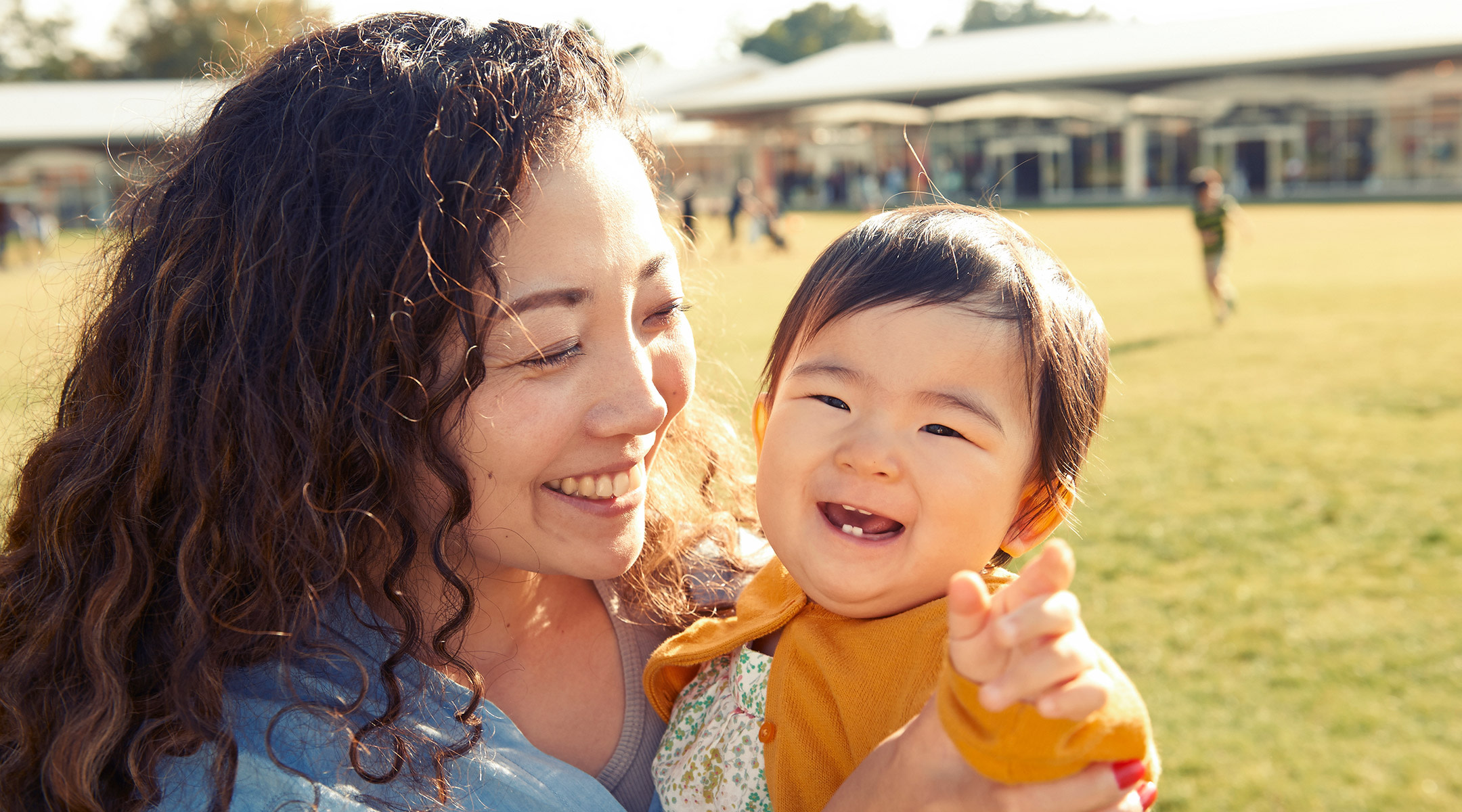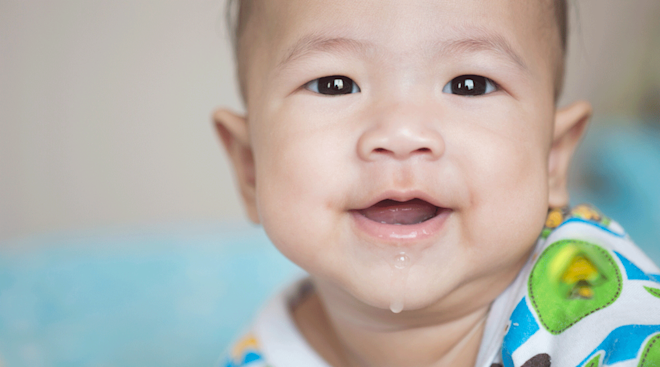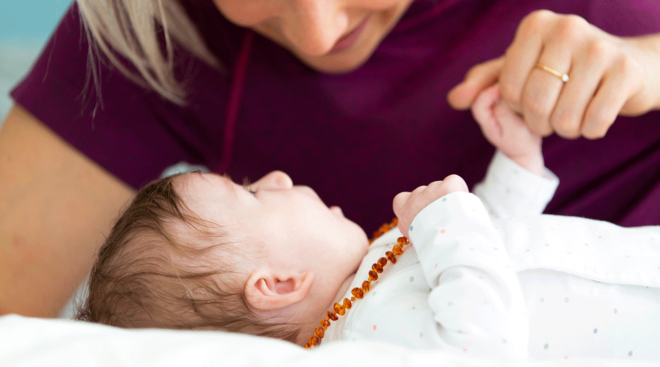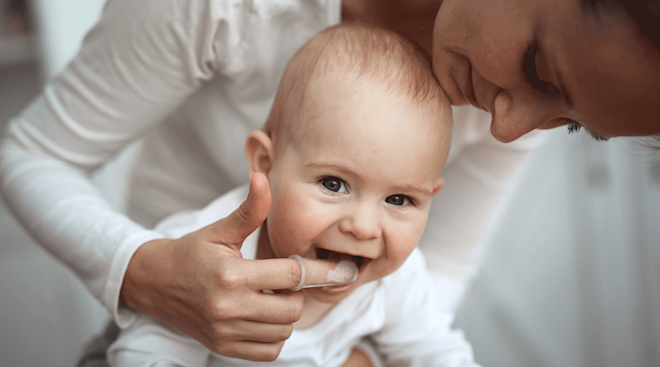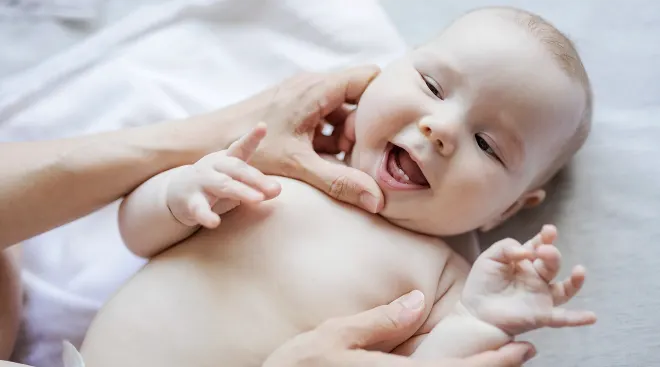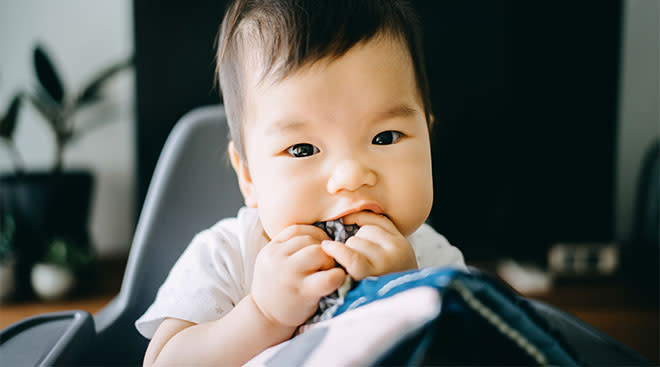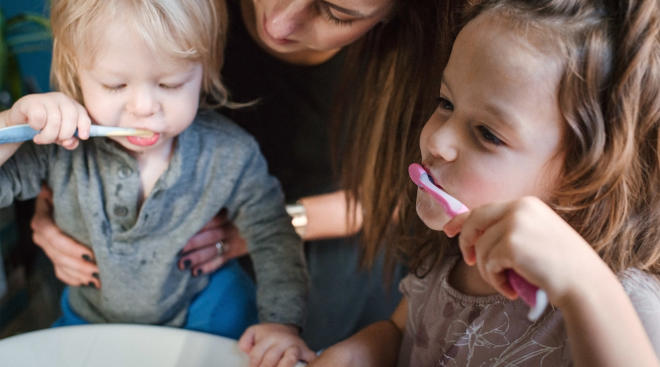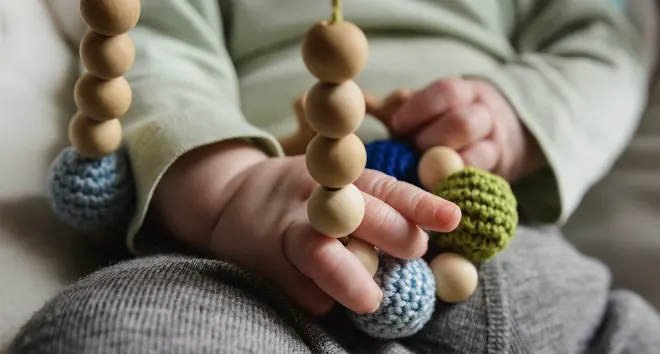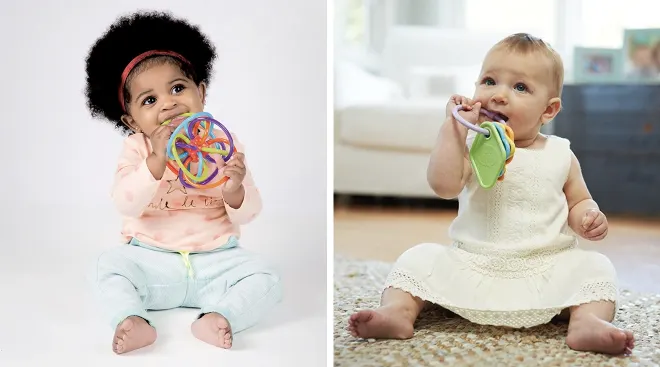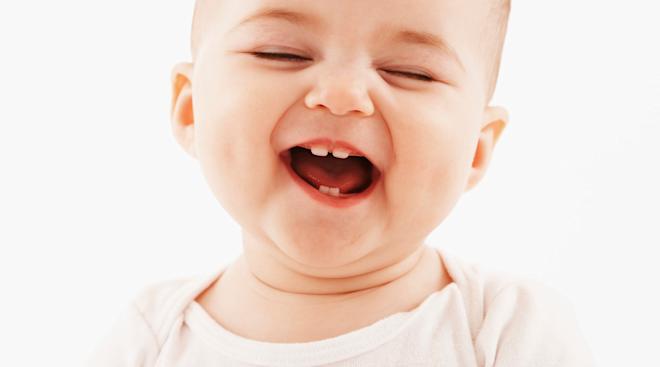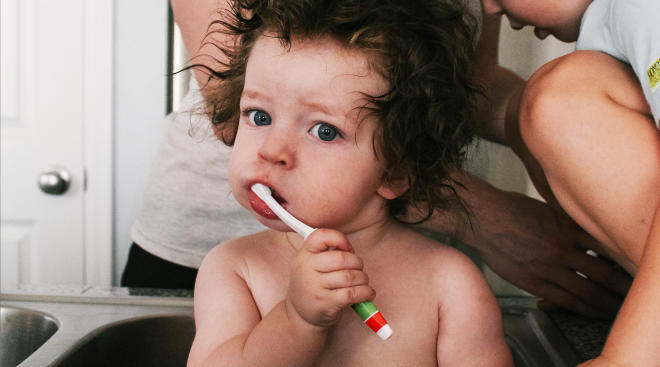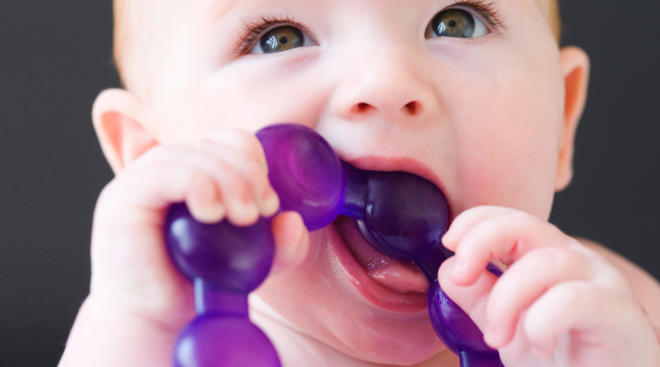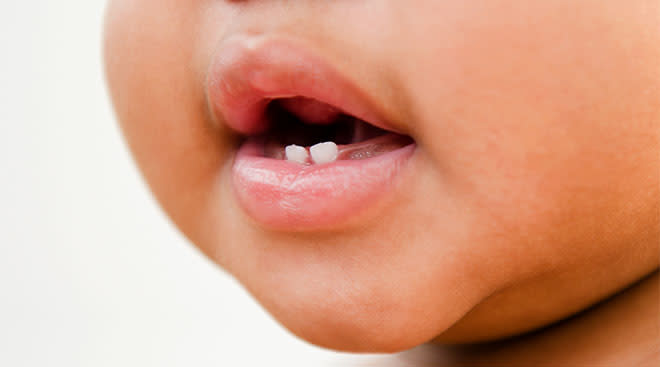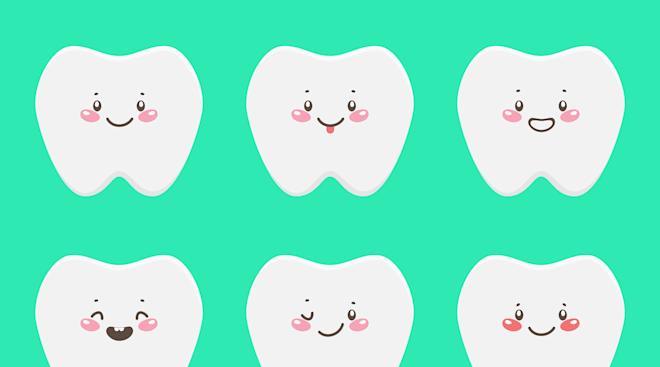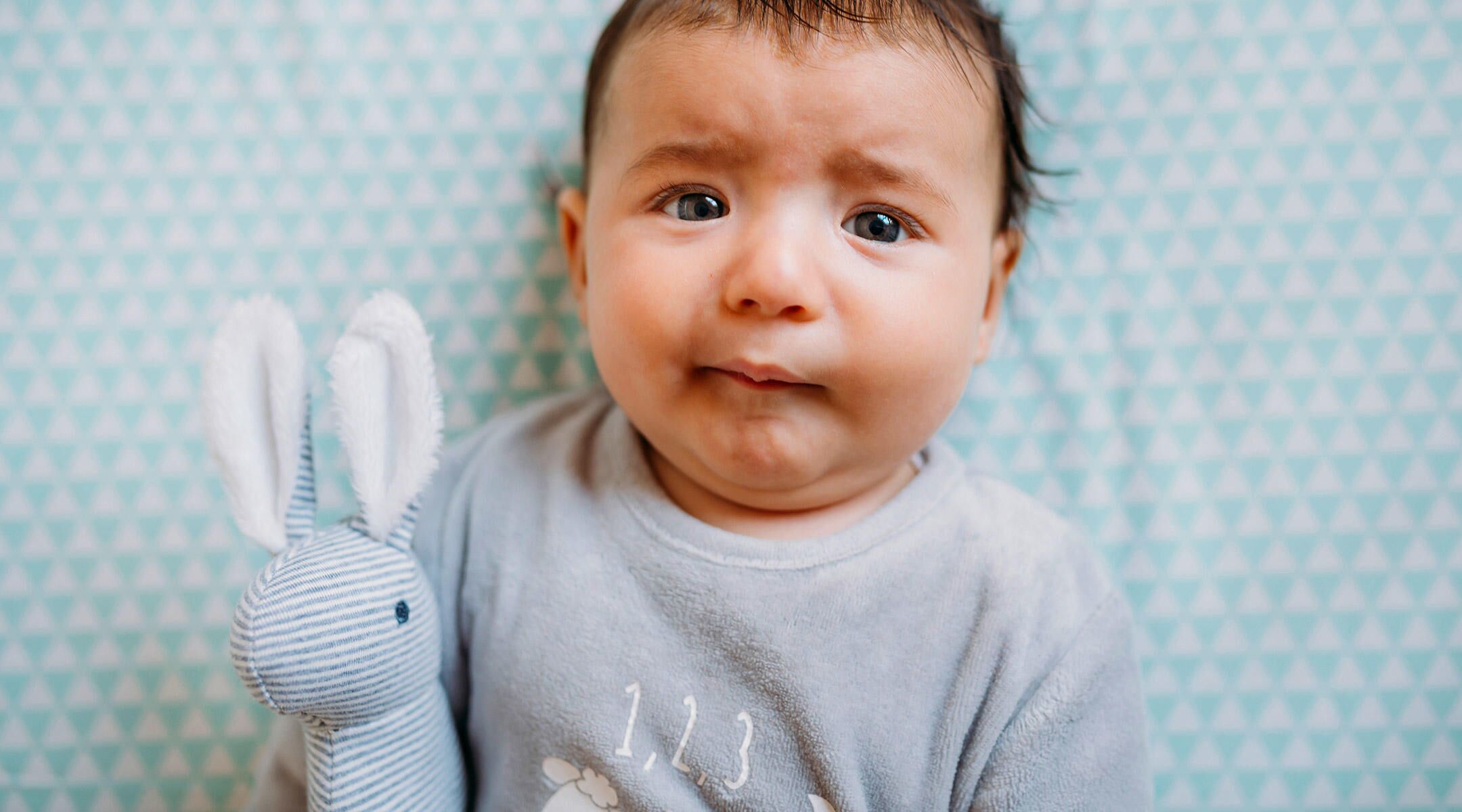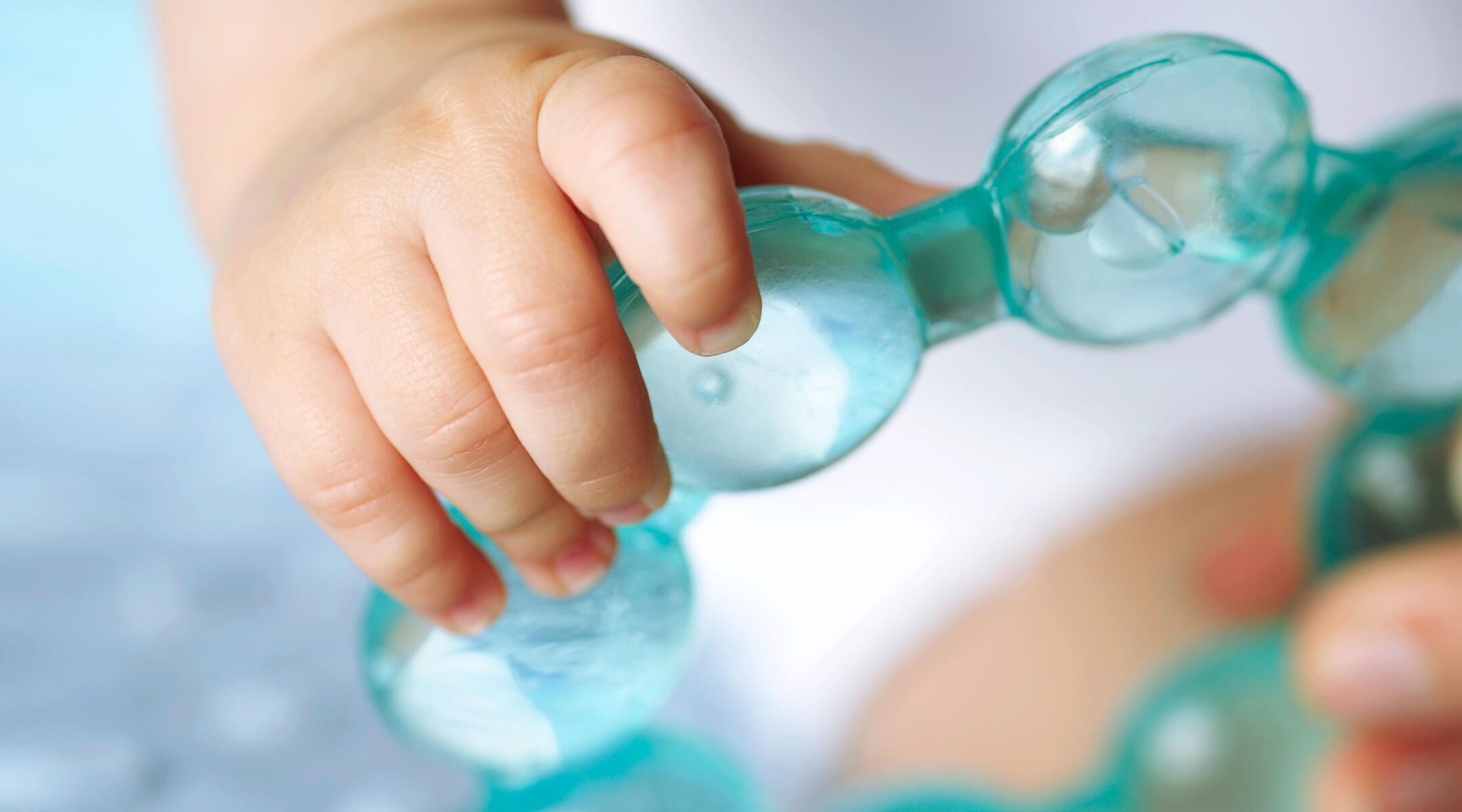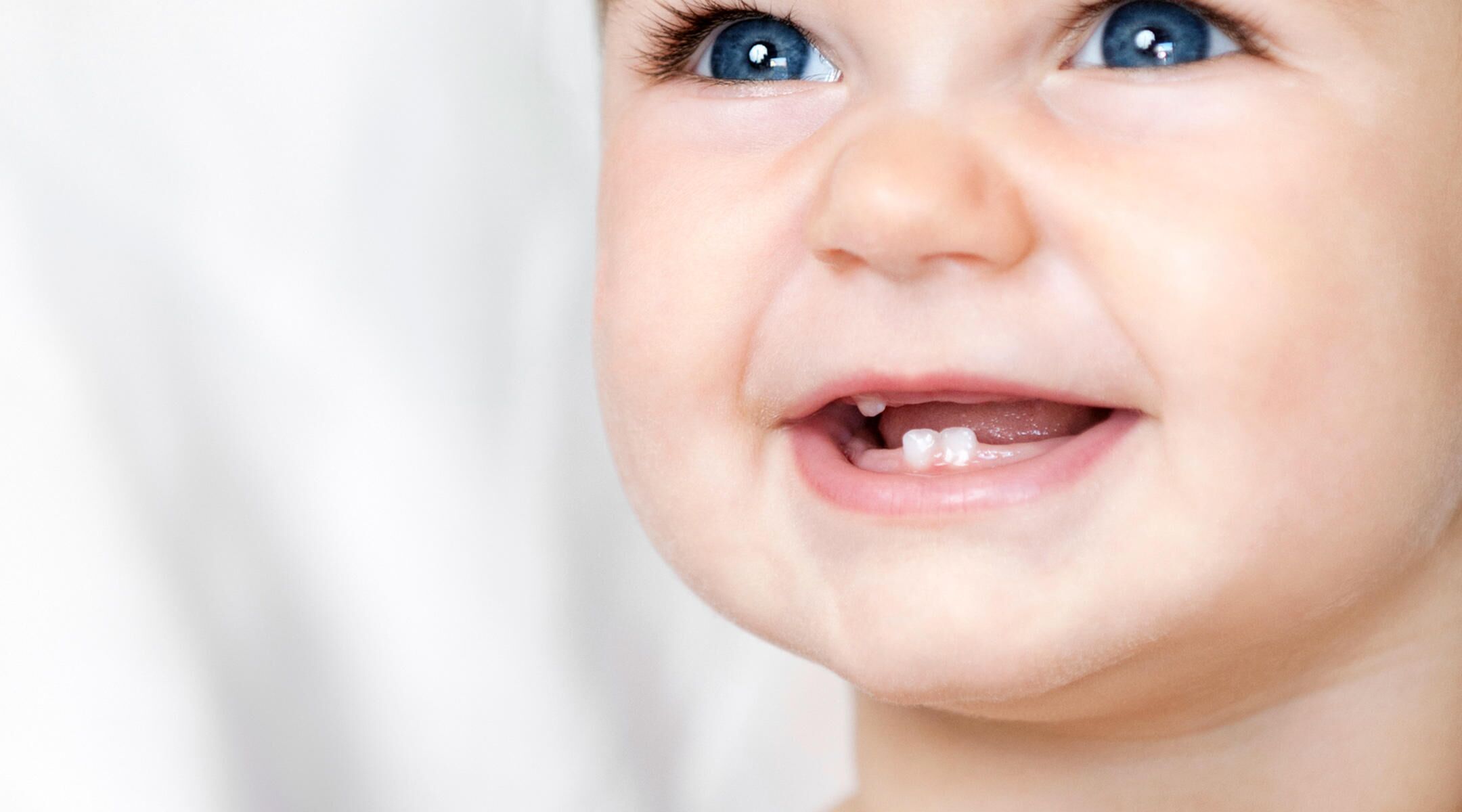They might be hidden right now, but baby is actually born with a mouthful of teeth. After about six months, those pearly whites will start to emerge, leaving baby in a bit of pain (hello, teething) and you with a lot of questions: How should I brush baby’s teeth? When should we go to the dentist? And why are the teeth growing in crooked?
We asked Cathleen Ballance, MD, a pediatrician at K. Hovnanian Children’s Hospital in New Jersey, to share her expert advice on all things dental, from how to take care of baby’s first teeth to the must-haves you need to clean them. Here, eight things you may not know about baby’s oral health.
Just because they’re going to fall out doesn’t mean you shouldn’t take care of baby’s first teeth. “They can develop cavities, which can lead to infection in the gums, pain and difficulty eating,” Ballance says. “When kids have cavities in their baby teeth, they’re much more likely to have them in their permanent teeth.” Why? Cavities are caused by specific germs that spread easily, so once baby’s mouth has been colonized by that bacteria, they’ll be prone to cavities in their adult teeth too. Plus, primary teeth save space for the development of permanent teeth, so if they fall out early due to decay or have to be pulled, it can cause shifting and crowding later on. That’s why the care you give your child’s teeth now can have a big impact on their health in the future.
They might be smaller (and not so permanent), but you should treat baby’s teeth practically like your own, which means brushing and yes, flossing—eventually. “The recommendation is to start brushing at the eruption of the first tooth,” Ballance says. You can use a baby toothbrush that has softer bristles or a finger brush that may be easier for you to control. Be sure to brush baby’s teeth and gums twice a day, particularly after feeding and before bedtime. As for flossing, that can wait until baby’s teeth are actually touching.
It’s never too early to focus on baby’s oral health. Even before baby’s teeth grow in, Ballance recommends wiping baby’s gums with a damp washcloth after feeding to prevent buildup of bacteria and plaque. “It prepares the gums for the new teeth that will push through and may also help ease the transition to brushing once the first tooth erupts,” she says. Another bonus? Putting gentle pressure on the gums can help relieve teething pain.
If you’re a little worried about fluoride, you’re not alone. “Some parents are concerned about their baby swallowing toothpastes with fluoride,” Ballance says. If that’s the case, she suggests using a pea-sized amount of a fluoride-free option until your child is a bit older and you feel confident they’ll be able to spit the toothpaste out. That said, the American Dental Association does recommend the use of fluoride to prevent cavities from the appearance of the first tooth.
We all know sugar and teeth are pretty much mortal enemies. But even if you limit super-sticky snacks and sugary juices, your little one could still be at risk for what’s called “baby bottle tooth decay.” This is caused by frequent and long-term exposure to liquids containing sugar—including breast milk, cow’s milk and formula, in addition to soda and fruit juice. Cleaning baby’s gums and teeth after feeding is essential to reduce bacteria and prevent cavities.
Think again before you clean that pacifier with your mouth or taste baby’s food using the same utensil. “People aren’t aware that cavities are caused by bacteria in the mouth and that bacteria can be transmitted from the caregiver to the baby,” Ballance says. Be cautious of what you’re passing on to baby via saliva and sterilize pacifiers to reduce the risk.
If baby’s teeth aren’t growing straight, you don’t need to panic just yet. “Crooked baby teeth that have adequate spacing on the gum do not predict crooked permanent teeth,” Ballance says. The only time to be concerned is if the teeth are overcrowding, which is caused when teeth come in too close together and don’t have space to grow in straight. If that happens, it may be a sign that your child will eventually need orthodontic treatment, like palate expanders or braces.
Nobody loves a trip to the dentist, but starting these important visits early can prevent future problems. Even if baby has just one tooth, you should make a dentist appointment within six months of its appearance or by the time baby is one year old. After that, unless you have a concern or baby has cavities, you should go every six months for routine dental cleaning and checkups. Nervous about baby’s first visit? “Find a pediatric dental practice—they’re usually set up to be kid-friendly,” Ballance says.
Please note: The Bump and the materials and information it contains are not intended to, and do not constitute, medical or other health advice or diagnosis and should not be used as such. You should always consult with a qualified physician or health professional about your specific circumstances.
Plus, more from The Bump:
Navigate forward to interact with the calendar and select a date. Press the question mark key to get the keyboard shortcuts for changing dates.
































